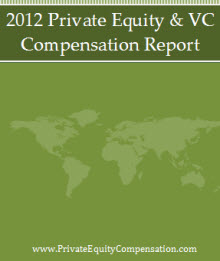While it’s no longer breaking news, the announcement of Facebook’s S-1 filing this week is worth a mention if only to acknowledge its significance as a milestone event in IPO history and as a venture funding success story. At $5 billion, the social giant’s IPO will be the 12th largest IPO in U.S. history and the largest Internet technology issue dwarfing Google’s $1.9 billion IPO in 2004. The estimated issue price of $29.73 would value the company at close to $100 billion, larger than Disney, McDonalds, Hewlett-Packard, and Cisco. There is no mistaking that this is going to be a really big deal. The only question remaining is whether the shares of Facebook will follow in the footsteps of Groupon or Google following their initial issue. Between now and the big day, sometime in the next four months, there will be no shortage of postulation on that very subject.
There will be some big winners with the IPO. Mark Zuckerberg, founder and CEO, will become a paper-billionaire and many of his employees will become instant millionaires. Accel Partners, one of the earliest investors in Facebook, is expected to parlay its original $13 million investment into approximately $11 billion, a return of nearly 1000%. Accel, which has also invested in Groupon and Rovio of Angry Birds fame, is quickly attaining “rock start” status among venture capital firms, and will most certainly stake its claim as king of the hill after the Facebook IPO. But, after that, the $100 billion question is whether there will more winners, such as what Google generated for its shareholders, or losers, such as what we have seen with most of the recently launched tech stocks whose shareholders have been sorely disappointed?
No one can argue that Facebook dominates the social media space and has successfully monetized its massive data base of user information. However, skeptics argue that its growth trajectory is limited due to market saturation and its main revenue source, targeted advertising, isn’t likely to generate the revenue growth needed to support its $100 billion valuation. With 845 million users, it has captured nearly 50 percent of the global Internet user-base of 2 billion. They see several obstacles that could trip up Facebook in its quest to squeeze more revenue out of business model that has yet to fully prove it can sustain the kind of earnings growth investors will need at that valuation.
In adapting its business model to expand the monetization of its data, the company faces a number of potential hurdles, including the expansion of privacy laws both here at home and abroad. Many analysts also wonder whether the company, which has operated in a cloak of secrecy with culture-driven management decisions, can effectively operate under the gaze of shareholders. Although business favors Facebook for its relatively low advertising costs, the low click-through rates may not generate the return-on-investment needed to warrant an advertising campaign on Facebook.
Thus far, Facebook has exceeded expectations, and, with its sheer scale, it is likely to continue to do so. But, in the realm of Internet companies, Facebook is no spring chicken and its business model is maturing. It needs to take the billions generated through its IPO and find a way to transform itself beyond a social networking site into an innovator that can dominate the cloud a la Google. For now, Facebook’s $5 billion IPO raises more questions for investors than it answers.


